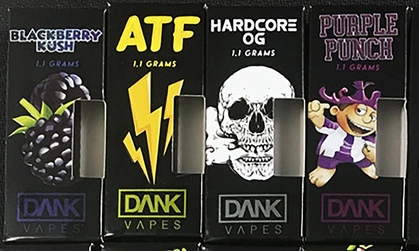Flu vaccine oopsie, eight signs of future OD, is anyone still selling Zantac? and more
01 Oct 2019
Posted by Andrew Kantor
Quick flu news
- This season is likely to be a bad one, going by what Australia just went through.
- It looks like the vaccine we’re using might not be great protection — two of the four strains in the vaccine might be the wrong ones.
The selections that officials made last week for the next Southern Hemisphere vaccine suggest that two of four viruses in the Northern Hemisphere vaccine that doctors and pharmacies are now pressing people to get may not be optimally protective this winter. Those two are influenza A/H3N2 and the influenza B/Victoria virus.
Antibiotic-resistance breakthrough
Newcastle U researchers have found what they think might be the way bacteria become resistant to antibiotics: not by changing their shape, but by losing their shape altogether. They literally shed their cellular walls, which are what antibiotics use as a target.
“Imagine that the wall is like the bacteria wearing a high-vis jacket. This gives them a regular shape (for example a rod or a sphere), making them strong and protecting them but also makes them highly visible—particularly to human immune system and antibiotics like penicillin.
“What we have seen is that in the presence of antibiotics, the bacteria are able to change from a highly regular walled form to a completely random, cell wall-deficient L-form state- in effect, shedding the yellow jacket and hiding it inside themselves.”
CVS pulls Zantac
It’s being recalled in Europe, Canada, China, and India, and now CVS says it won’t sell Zantac or its generic versions because of cancer fears. The FDA still has not issued a recall, though, and hasn’t even recommended that patients stop taking it.
Late-breaking: Add Bangladesh to that list of countries banning ranitidine.
Late-breaking: Walgreens, too.
Let’s talk about gout
Got patients with the gout? One physician says we’re doing a “crummy” job of managing it. Getting patients to understand what gout is and why adherence is critical … well, that would go a long way.
“The disease is getting worse all the time unless you are taking urate lowering therapies.”
“Spoiler alert: It’s genetic. Diet accounts for only about 1% of uric acid variability.”
Bad touch (x 8)
There are eight “touchpoints” that can determine if someone is likely to overdose on opioids, according to a study from the Boston University School of Medicine. People who hit any one of them are more likely to OD within a year:
- high dosage
- benzodiazepine coprescribing
- multiple prescribers
- multiple pharmacies
- opioid detoxification
- nonfatal opioid overdose
- injection-related infection
- release from incarceration
Diabetes and hypertension: Don’t delay
People with diabetes need to treat any hypertension — quickly. The longer they wait to get it under control, the greater their risk of heart attack or stroke. When systolic blood pressure goes above 130 mmHg, it’s time to do something.
If people weren’t dying this might almost be funny
A small clue in the hunt for the culprit of the Mysterious Vaping Illness: Products labeled “Dank Vapes” are among the “brands” of THC-containing products that appear to connect victims. At least some victims. In Illinois and Wisconsin.
We put the word brands in quotes because Dank Vapes isn’t so much a brand as it is “a label that THC sellers can slap on any product and is not a specific formulation.” And the kicker: “It is unknown who makes the THC products or where they come from.” Why is it unknown? Because most people who got sick bought their carts from “informal sources.”

Big news, lousy title
The paper’s title: “Combination therapy using fibrinogen γ‐chain peptide‐coated, ADP‐encapsulated liposomes and hemoglobin vesicles for trauma‐induced massive hemorrhage in thrombocytopenic rabbits.”
The translation: Japanese researchers have developed an artifical blood that works with any blood type and can be stored for more than a year.


